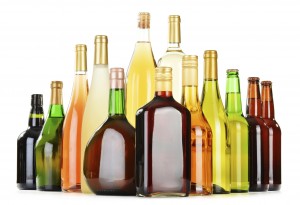
More than a hundred studies in recent years have documented the apparent benefit of moderate alcohol consumption to the health of men and women. One to two daily drinks for men, and one for women, are associated with lower risk of cardiovascular disease, including heart attack and the most common type of stroke. Studies have also found that this low alcohol intake may protect against gallstones and improve insulin sensitivity, thus decreasing the risk for type 2 diabetes.
But when it comes to women who are pregnant or trying to conceive, most health authorities agree that not drinking any alcohol is best, given the degree of harm that it can cause to a developing baby.
Now, a new Danish study, published in the British Medical Journal, has found that men looking to conceive should also watch their alcohol consumption. The study found that as few as five alcoholic beverages a week, or more, are associated with lower sperm quality.
The study interviewed and examined 1,200 Danish men aged 18 to 28; they had undergone mandatory screening in connection with compulsory military service. Other than the differences in sperm quality, the men were in good health. “Quality” was defined as sperm count, size and shape.
Researchers found that men who drank an average of 5 to 10 units of alcohol a week (one unit equals a 12-oz beer, a 5-oz glass of wine or 1.5 oz of hard liquor) had a slight decrease in sperm concentration, total sperm count and percentage of sperm that were normal-looking and healthy.
Those negative effects were much more noticeable in men who drank 25 units a week (3.5 drinks a day). And when men averaged 40 units a week — about six drinks a day — they had a 33 percent reduction in sperm, compared to men who drank fewer than 5 drinks a week. Further, men who drank 40 weekly units had 51 percent fewer normal-looking sperm than men who drank fewer than 5 weekly units.
In addition, researchers found that men who drank alcohol in the week before they were tested also showed changes in their reproductive hormone levels: testosterone levels rose, but levels of sex hormone binding globulin (SHBG) decreased.
SHBG, a protein made by the liver, is key in maintaining normal levels of three sex hormones that both men and women have: testosterone, estrogen and dihydrotestosterone (DHT). SHBG binds tightly to these hormones and carries them through the blood. SHBG, therefore, controls the amount of testosterone that the body’s tissues can use.
Prof. Tina Kold Jensen, MD, the study’s lead author, believes that her study paints a more accurate picture of male drinking and its effects than previous studies. The research team started by asking the men to detail, unit by unit, how many alcoholic drinks they had drunk the week before the screenings.
Then, researchers asked the men to assess whether that week had been a typical week as far as drinking, or not. This weeded out men who might have drunk more than usual in the week before they were tested. The study found that heavy drinking only affected sperm quality in men who stated that that was their normal routine.
Could lower sperm quality be reversed in men who decrease their drinking to almost none? Dr. Jensen said that that point could not be determined from the study, as men would have to be tested long-term to assess that. However, she said it might be reasonable to expect that sperm quality and count would improve within three months, since that’s how long it takes new sperm to mature. She added the recommendation for young men that they drink less alcohol, as it’s healthier for the liver and most other body tissues.
As an interesting final point, men in the study who drank no alcohol at all also had somewhat reduced sperm quality; so, from the results of this study, it seems that drinking a couple, 3 or 4 drinks a week might be best for sperm health.
But to reap those and other health benefits, those few drinks should be spread out; previous studies have shown that consuming a handful of drinks on the same day may do more harm than good to the body, as opposed to having 1-2 drinks in one day, which is what medical experts have agreed offers protective health benefits. (Source: Harvard School of Public Health.)
By Cynthia Sanchez. A graduate of the University of Washington, Cynthia has extensive experience writing about health and wellness topics for different media.
